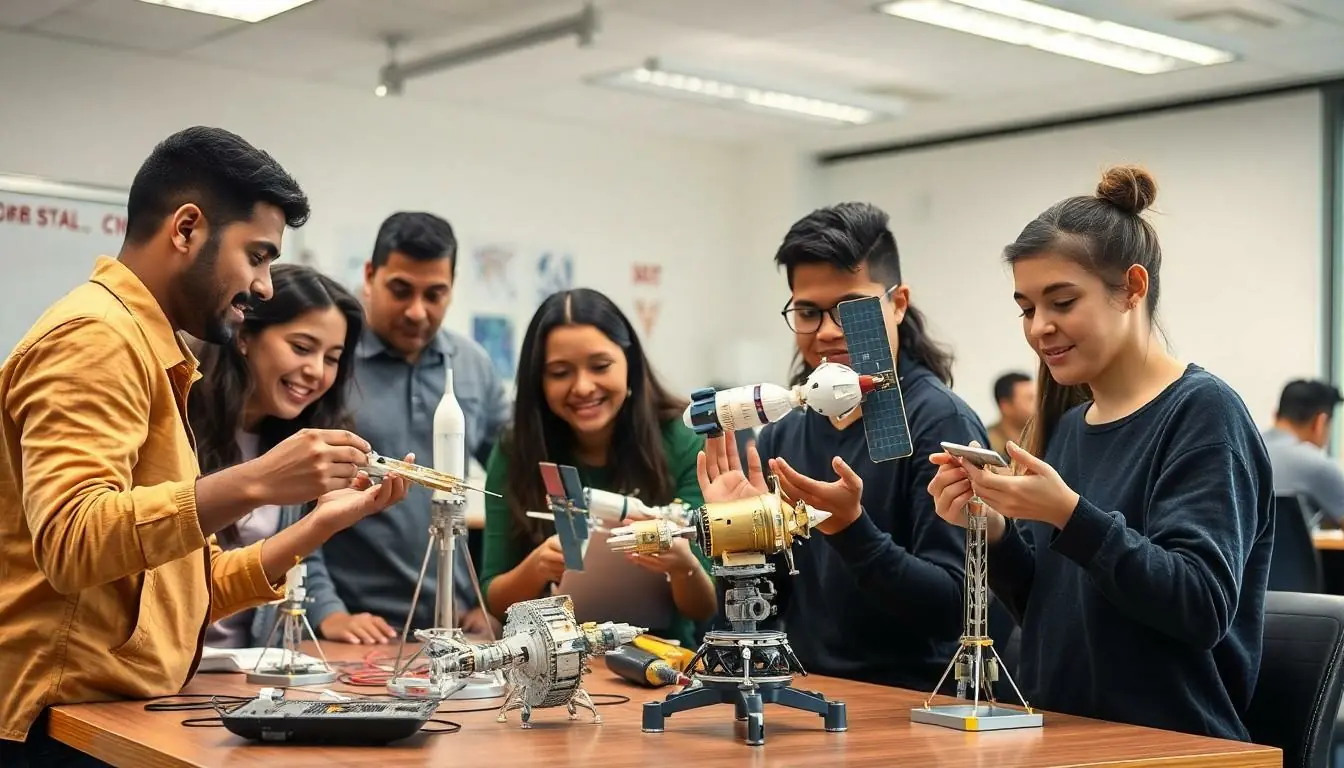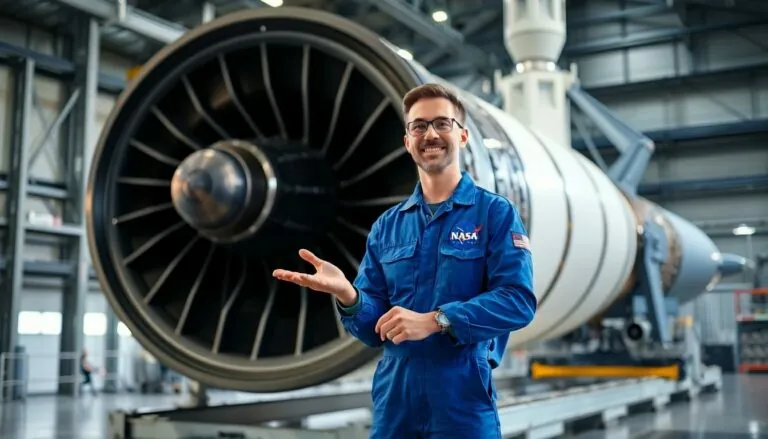Table of Contents
ToggleIn a world where space isn’t just the final frontier but also the next big career move, space technology courses are blasting off into popularity. Whether you’re dreaming of designing rockets or figuring out how to make a satellite that doesn’t crash into your neighbor’s backyard, these courses offer a cosmic array of opportunities.
Overview Of Space Technology Courses
Space technology courses offer a comprehensive understanding of the industry. They cover essential topics like spacecraft design, satellite technology, and propulsion systems. Students engage in hands-on projects that involve real-world applications, such as building small satellites or simulating space missions.
Classes often include coursework in systems engineering, robotics, and artificial intelligence. These subjects prepare learners for various roles in research, development, and operations within space agencies and private companies.
Additionally, many programs collaborate with industry partners, providing internships or co-op opportunities. Networking with professionals in the field proves valuable for securing employment after graduation.
Online options for space technology courses are available, accommodating flexible learning styles. Institutions often design these programs to cater to both full-time students and working professionals.
Certifications and specialized training programs also enhance skill sets, offering learners more focused knowledge in specific areas such as launch operations or satellite communications. These credentials may lead to advanced positions in emerging sectors of the space industry.
Space technology courses equip students with vital expertise, aligning education with the needs of a rapidly evolving market. As exploration expands, these courses create pathways for future leaders in space technology.
Benefits Of Taking Space Technology Courses

Space technology courses offer significant advantages for aspiring professionals in the space sector. Participants gain a deeper understanding of complex concepts while acquiring practical skills that are highly valued in the industry.
Career Opportunities
Graduates access diverse career pathways in the space exploration field. Roles range from spacecraft engineers to satellite operators, reflecting the industry’s demand for qualified talent. Many companies, including major aerospace firms and government agencies, actively seek individuals with specialized training. Internship programs often serve as a bridge to employment, allowing students to showcase their skills and network with industry leaders. Proximity to cutting-edge projects boosts competitiveness in securing positions within this dynamic sector.
Skills Development
Students enhance critical skills crucial for success in space technology. Technical knowledge in areas like spacecraft design, propulsion systems, and satellite technology forms a solid foundation. Project-based learning fosters collaboration and problem-solving abilities, essential in real-world situations. Exposure to advanced fields such as robotics and artificial intelligence equips learners with tools to drive innovation. Certifications further validate expertise, empowering professionals to excel and adapt in a rapidly evolving market.
Types Of Space Technology Courses
Space technology courses come in various formats, catering to different learning preferences. Participants can choose between online courses that offer flexibility and in-person classes that provide hands-on experiences.
Online Courses
Online courses provide convenient access to space technology education. These programs often feature interactive modules plus video lectures from industry professionals. Students can learn at their own pace, making it easier to balance studies with work or personal commitments. Coursework typically includes topics like satellite communications and systems engineering, allowing learners to gain critical knowledge from anywhere. Many programs also include virtual labs that simulate real-world scenarios, enhancing practical skills. This format attracts those seeking to enter the field while maintaining existing jobs or responsibilities.
In-Person Courses
In-person courses foster direct interaction with instructors and peers. These classes frequently emphasize hands-on projects, such as building prototypes or operating simulation software. Engaging in group activities encourages collaboration and problem-solving skills, vital for success in the field. Students often benefit from access to advanced facilities, which can include laboratories and testing equipment. Networking opportunities abound in these settings, connecting learners with industry leaders and potential employers. Many in-person programs also integrate internships, providing vital experience and enhancing career prospects after graduation.
Factors To Consider When Choosing A Course
Selecting the right space technology course involves several key factors. Ensuring a good fit significantly impacts long-term success in this dynamic field.
Accreditation
Accreditation stands as a crucial factor to assess. Recognized programs ensure the quality of education meets industry standards. Employers often prioritize candidates who graduated from accredited institutions. Checking for accreditation status provides assurance that the curriculum is relevant and rigorous. Admittance into licensed programs can lead to better internship opportunities, further enhancing a student’s profile. Evaluating programs through their accreditation also facilitates easy transfer of credits if a student decides to continue their education later.
Course Content
Course content plays a vital role in shaping knowledge and skills. Thoroughly reviewing curriculum outlines reveals essential themes such as spacecraft design, propulsion systems, and satellite technology. Programs emphasizing hands-on projects offer practical experience, preparing students for real-world applications. Engaging with cutting-edge subjects like robotics or artificial intelligence enhances understanding and adaptability in a fast-evolving industry. Industry collaboration often leads to guest lectures and project opportunities that enrich learning. Prioritizing courses that blend theoretical knowledge with practical skills creates a strong foundation for future employment.
Space technology courses are paving the way for future innovators in the industry. With a blend of theoretical knowledge and hands-on experience, students are well-equipped to tackle the challenges of space exploration. The diverse career opportunities available ensure that graduates can find their niche, whether in engineering, operations, or research.
As the demand for skilled professionals continues to grow, pursuing a space technology course can be a strategic move for anyone passionate about this field. With various learning formats and internship opportunities, aspiring students can tailor their education to fit their goals. Embracing this exciting journey not only enhances individual skills but also contributes to the advancement of space technology as a whole.







